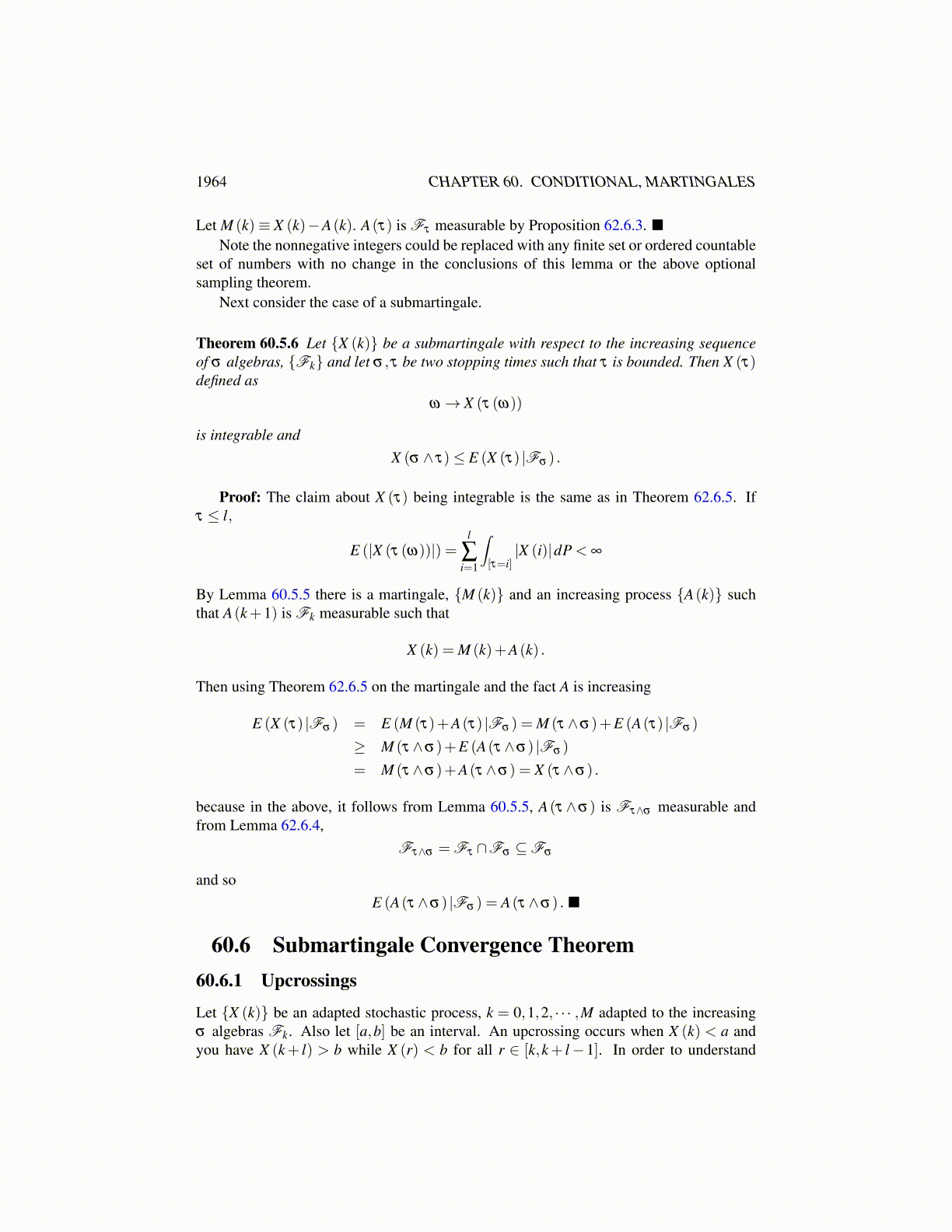
1964 CHAPTER 60. CONDITIONAL, MARTINGALES
This proves the first assertion and makes possible the consideration of conditional expecta-tion.
Let l ≥ τ as described above. Then for k ≤ l, by Lemma 62.6.4,
Fk ∩ [τ = k] = Fτ ∩ [τ = k]≡ G
implying that if g is either Fk measurable or Fτ measurable, then its restriction to [τ = k]is G measurable and so if A ∈Fk ∩ [τ = k] = Fτ ∩ [τ = k] ,∫
AE (M (l) |Fτ)dP ≡
∫A
M (l)dP
=∫
AE (M (l) |Fk)dP
=∫
AM (k)dP
=∫
AM (τ)dP (on A,τ = k)
Therefore, since A was arbitrary,
E (M (l) |Fτ) = M (τ) a.e.
on [τ = k] for every k ≤ l. It follows
E (M (l) |Fτ) = M (τ) a.e. (60.5.11)
since it is true on each [τ = k] for all k ≤ l.Now consider E (M (τ) |Fσ ) on the set [σ = i]∩ [τ = j]. By Lemma 62.6.4, on this set,
E (M (τ) |Fσ ) = E (M (τ) |Fi) = E (E (M (l) |Fτ) |Fi) = E (E (M (l) |F j) |Fi)
If j ≤ i, this reduces to
E (M (l) |F j) = M ( j) = M (σ ∧ τ) .
If j > i, this reduces toE (M (l) |Fi) = M (i) = M (σ ∧ τ)
and since this exhausts all possibilities for values of σ and τ, it follows
E (M (τ) |Fσ ) = M (σ ∧ τ) a.e.
This is a really amazing theorem. Note it says M (σ ∧ τ) = E (M (τ) |Fσ ) . I wouldhave expected something involving E (M (τ) |Fσ∧τ) on the right.
What about submartingales? Recall {X (k)}∞
k=1 is a submartingale if
E (X (k+1) |Fk)≥ X (k)
where the Fk are an increasing sequence of σ algebras in the usual way. The following isa very interesting result.